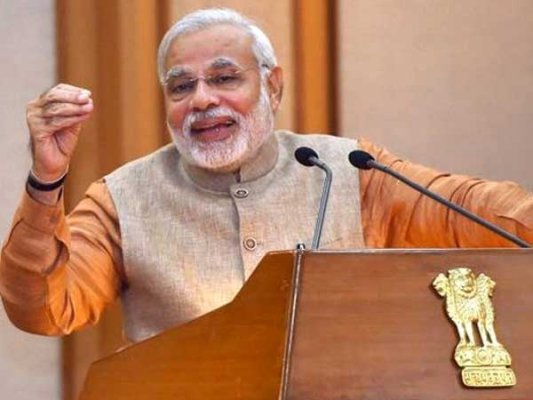
After presiding over Gujarat for 13 long years, Modi created history in May when he led the party to a stunning electoral win. The BJP became the first party in three decades to get a majority of its own in the 545-seat Lok Sabha, crushing the Congress to a humiliating 44 seats.
Although Modi formed a coalition government after being sworn in on May 26, it is Brand Modi that stands out. Some of his decisions are plainly visible.
Besides giving a new direction in governance, the government has started on the gargantuan job of financial inclusion of 1.2 billion Indians, to eradicate what Modi calls "financial untouchability" from the country, embarked on the difficult path of judicial reforms, displayed the will to hike rail fares and axed the decades-old Planning Commission, formed a special team to retrieve black money stashed abroad, set up a portal for citizens to directly interface with the government, and come up with a ministry of entrepreneurship to promote citizen-driven growth.
Ajay Shriram, president of the Confederation of Indian Industry, told IANS: "Investor sentiment is back as the new government demonstrates high commitment to growth and reforms. In our interactions with ministers and officials, we have found strong willingness to consider industry's views and take up out-of-the-box solutions."
Modi has told ministers to curtail all wasteful expenditure and virtually banned foreign jaunts. All policy decisions are vetted. Do's and don'ts have been issued to ministers and officialdom. Different ministries can no longer work at cross-purposes.
And Modi the politician - who rose through the ranks after having once sold tea at a small town railway station in Gujarat - turned the customary Aug 15 Independence Day speech to connect with the people like no prime minister has done, underlining, among others, the basic social and civic values of cleanliness and hygiene.
Close to 100 days, assertive Narendra Modi stands tall as PM
New Delhi: As he completes 100 days in office Sep 2, Prime Minister Narendra Modi's popularity is still running high as he unleashes a new style of governance and is surprising everyone with his grasp

Published: , Updated:
Advertisement
Advertisement
Top News
-
Kerala local body poll results: LDF faces setback as UDF surges, lotus blooms in Thiruvananthapuram

-
Lionel Messi GOAT tour: From chaos in Kolkata to Hyderabad's hospitality, here's how day 1 fared

-
Delhi govt orders hybrid classes for students, work from home for offices amid severe air pollution

-
'I was terrified': Masood Azhar, terrorist and Jaish chief, opens up about his Jammu jail ordeal

Advertisement
Advertisement